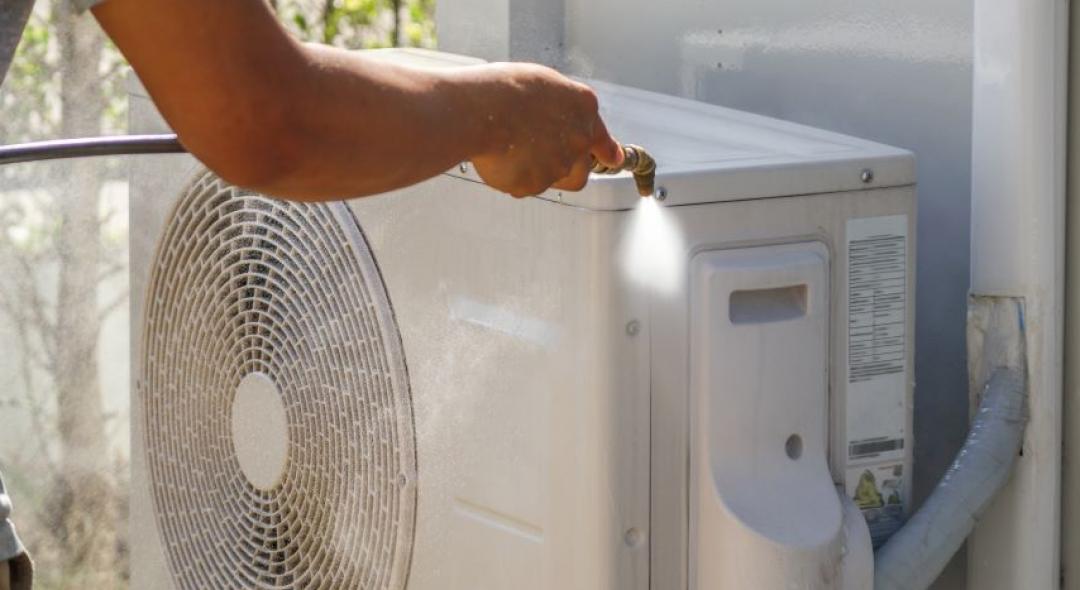
Here is why AC condenser problems might end your peace of mind. When the scorching heat of summer arrives, nothing feels more refreshing than stepping into a cool, air-conditioned room. However, an essential component that ensures the smooth functioning of your AC system is the condenser.
Unfortunately, like any other mechanical equipment, AC condensers are prone to problems. In this article, explore common AC condenser issues, how to identify them, and what steps you can take to fix them.
How To Tell If AC Condenser Is Bad
Detecting a faulty AC condenser can save you from enduring hot and uncomfortable days. Keep an eye out for the following warning 6 signs of a bad AC condenser.
- The AC is struggling to cool your space effectively or takes longer than usual.
- Warm air blowing from vents.
- Unusual noises, such as grinding, screeching, or rattling coming from the outdoor unit of your AC system.
- Leaks around the condenser, like oily residue or refrigerant pooling around the unit.
- Increased energy bills.
- The AC refuses to turn on.
If you observe any of these signs, it is advisable to contact a qualified technician to diagnose why your AC condenser is not working and address the issue promptly. Plus, there could be other reasons why your AC is not working properly, check them out now!
What Happens When AC Condenser Goes Bad?
When there is an AC condenser problem, it can disrupt the entire cooling process. The condenser plays a crucial role in dissipating heat from the refrigerant, allowing it to cool down and circulate again.
A faulty condenser can lead to inadequate cooling, resulting in discomfort and reduced indoor air quality. Also, a malfunctioning condenser can put additional strain on other components, leading to more extensive and expensive repairs down the line.
Will An AC Work With A Bad Condenser?
Unfortunately, an AC system cannot function properly with a faulty condenser. The condenser is responsible for releasing the heat absorbed from your indoor space, so if it fails to do its job efficiently, your AC will struggle to cool the air effectively.
Running your AC with a bad condenser can lead to reduced cooling capacity, increased energy consumption, and potential damage to other components. That is why it is crucial to address bad AC condenser symptoms quickly to guarantee the functionality and longevity of your AC system.
What Is The Lifespan Of An AC Condenser?
The lifespan of an AC condenser can vary depending on several factors, such as maintenance, usage patterns, and environmental conditions. On average, a well-maintained condenser can last between 10 to 15 years.
However, certain factors, such as exposure to extreme weather, lack of regular maintenance, or excessive strain on the unit, can shorten its lifespan. Regular inspections, cleaning, and timely repairs can help extend the life of your condenser and maximize its efficiency.
How To Troubleshoot AC Condenser Problems?
If you are planning on AC condenser troubleshooting yourself, here are the crucial steps to know if your air conditioner is running well.
- Check the power supply.
- Clean the condenser coils – dirty condenser coils can be a real problem.
- Clear the area around the condenser.
- Check the fan motor.
- Inspect the capacitor.
- Check for refrigerant leaks.
If you find any issues during your troubleshooting attempts or if the problem persists, it is best to seek assistance from our HVAC technicians. They have the expertise and specialized tools to diagnose and repair AC condenser problems effectively, ensuring that your cooling system operates efficiently and provides the comfort you need.
